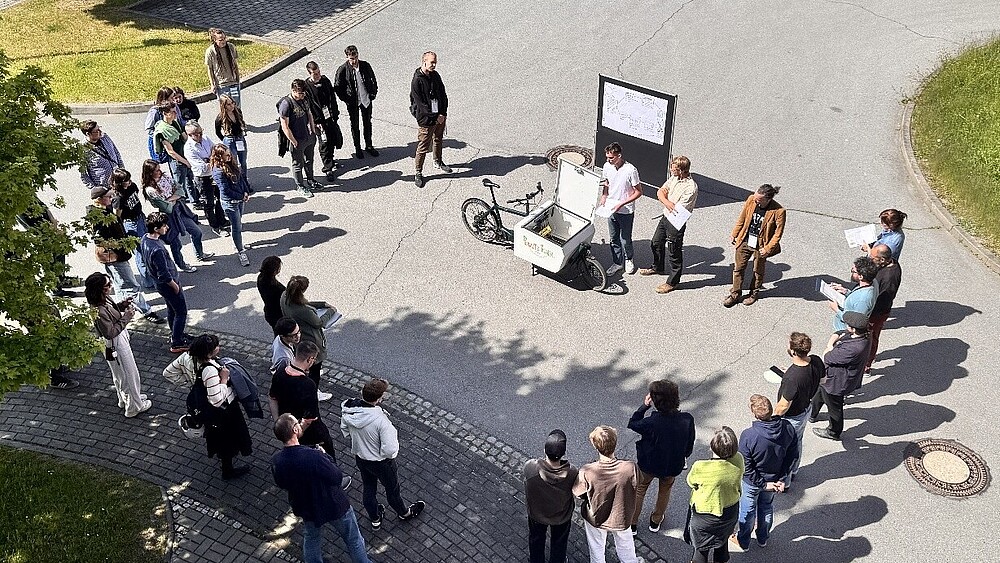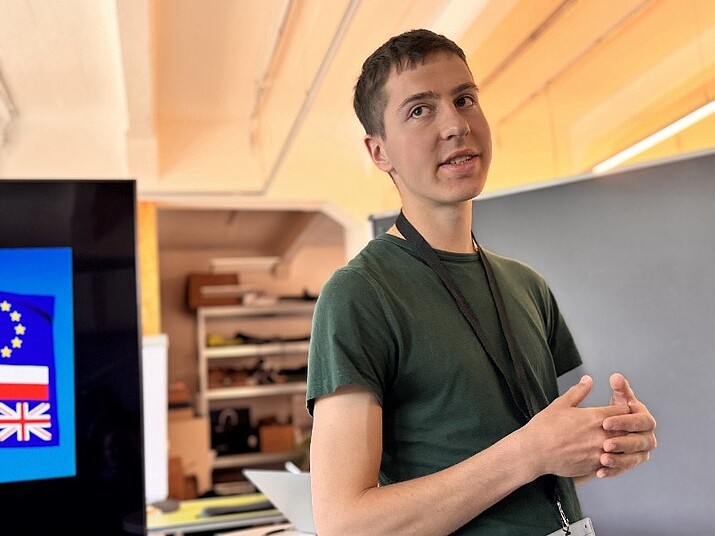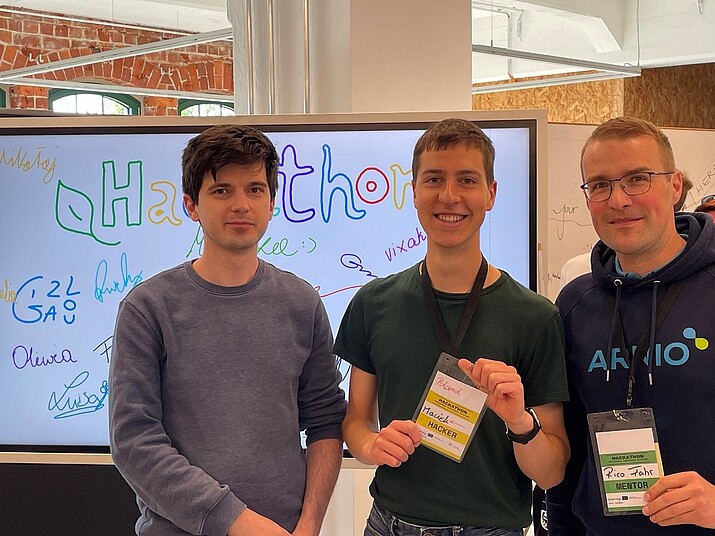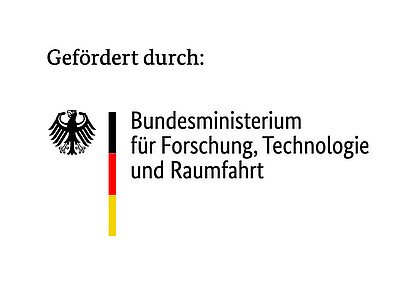SCO-TTi research team at the "Sustainable Crossborder Solutions" hackathon.

In May of this year, the Zittau/Görlitz University of Applied Sciences hosted the international hackathon 'Sustainable Crossborder Solutions' . Although the event took place several months ago, its results and impulses will continue to have an impact far beyond the weekend. The format brought together creative minds from Poland, the Czech Republic and Germany for 48 hours to work together on sustainable solutions for real challenges in the three-country region. The focus was on topics such as energy efficiency, resource conservation, economic development and social innovation.
As part of the BMBF project PerspektiveArbeit Lausitz, the SCO-TTi research team prepared one of eight case studies for the hackathon in collaboration with ARNIO GmbH. The aim was to design, develop and present an intelligent, energy-efficient customer chatbot demonstrator for multilingual use in organizations and companies, which should meet several requirements.

As part of the hackathon, participants had access to a modern infrastructure. Among other things, 3D printers, laser cutters, laboratories and an interdisciplinary working environment with dedicated supervision and a wide range of methodological support were available.
The case study from the PAL research project in cooperation with ARNIO particularly impressed one of the hackathon participants - Maciej Gmur from neighboring Poland. Even before the event, he showed great interest in the thematic focus of the hackathon, especially in the cooperation between the three neighboring countries. "I was originally attracted by the general purpose of the hackathon: cooperation between three neighboring countries," says Maciej Gmur. "I thought it was great to do something for our area, and even more so that the projects and the event itself placed great emphasis on eco-aspects. Afterwards, I fell in love with the atmosphere: modern university, beautiful city and unique people who were on the same wavelength. My personal goal was to give a convincing presentation. And to a certain extent, I managed to do that. This was my first hackathon and hopefully not the last."

Maciej was characterized by a high degree of creativity and initiative. Beyond the actual requirements of the case study, he developed additional ideas for the further development of the chatbot concept with the support of his supervisors from the SCO-TTi and ARNIO research team, for example for improved user guidance and the modular integration of specialist content. It was clear that he was not only concentrating on solving a technical task, but was also seriously considering the potential of such a system in the university context and in the context of regional companies.
Over the course of 48 hours, a functional demonstration concept was developed that took into account key requirements such as energy efficiency, language diversity and user orientation. Even if not every technical detail could be fully realized during the weekend, the creative solution and concrete applicability were clearly the focus of the contribution. Maciej's work was recognized by the Hackathon jury with a special prize.
In conclusion, it should be noted that the hackathon not only generated innovative ideas, but also an extremely positive atmosphere. The mixture of intercultural cooperation, technical challenges and sustainable objectives made the event a valuable experience - both for the participants and the supervisors.
For ARNIO, the hackathon was an ideal opportunity to turn the topic of a multilingual service chatbot into a real prototype in the shortest possible time and to discuss its possibilities and limitations. The personal and professional exchange between all those involved will continue far beyond the hackathon.
The hackathon impressively demonstrated how much innovative power there is in interdisciplinary and international collaboration. Within just 48 hours, not only were creative technical solutions developed, but bridges were also built between countries, disciplines and people. The commitment of participants like Maciej Gmur in particular illustrates how important it is to give young talents spaces in which they can test and shape ideas with social relevance - this is precisely the spirit that the members of my research team SCO-TTi and I want to promote.
”When young, creative and committed people from different countries, disciplines and backgrounds come together, it's not just technical solutions or ideas that are created - it's the future. The hackathon was an impressive example of how much potential there is for our three-country region in open, collaborative innovation.
”The developed concept and the demonstrator could be further discussed and developed at the Lausitz Life & Technology Future Forum on June 19, 2025 at the HSZG as well as in individual discussions with SCO-TTi and ARNIO.
We would like to thank Maciej for his great commitment and excellent performance. Many thanks to all participants, supervisors and organizers for a very exciting and productive weekend!
In PAL, 5 universities and 27 companies in Saxony and Brandenburg are researching and working on making work in Lausitz efficient, attractive and healthier using data-based assistance systems. The aim is to use AI to support structural change in the Lausitz region and create new employment opportunities in order to facilitate the transition from the coal industry to a long-term stable and sustainable economy. This is being done while taking into account the core values of people-centricity, sustainability and competitiveness. The term PAL in English means "buddy", meaning that the AI solutions are intended to serve as welcome support for users.
Project duration:
01.10.2023–31.10.2026
Funding:
The underlying project is funded by the Federal Ministry of Education and Research under the funding code 02L19C329.
